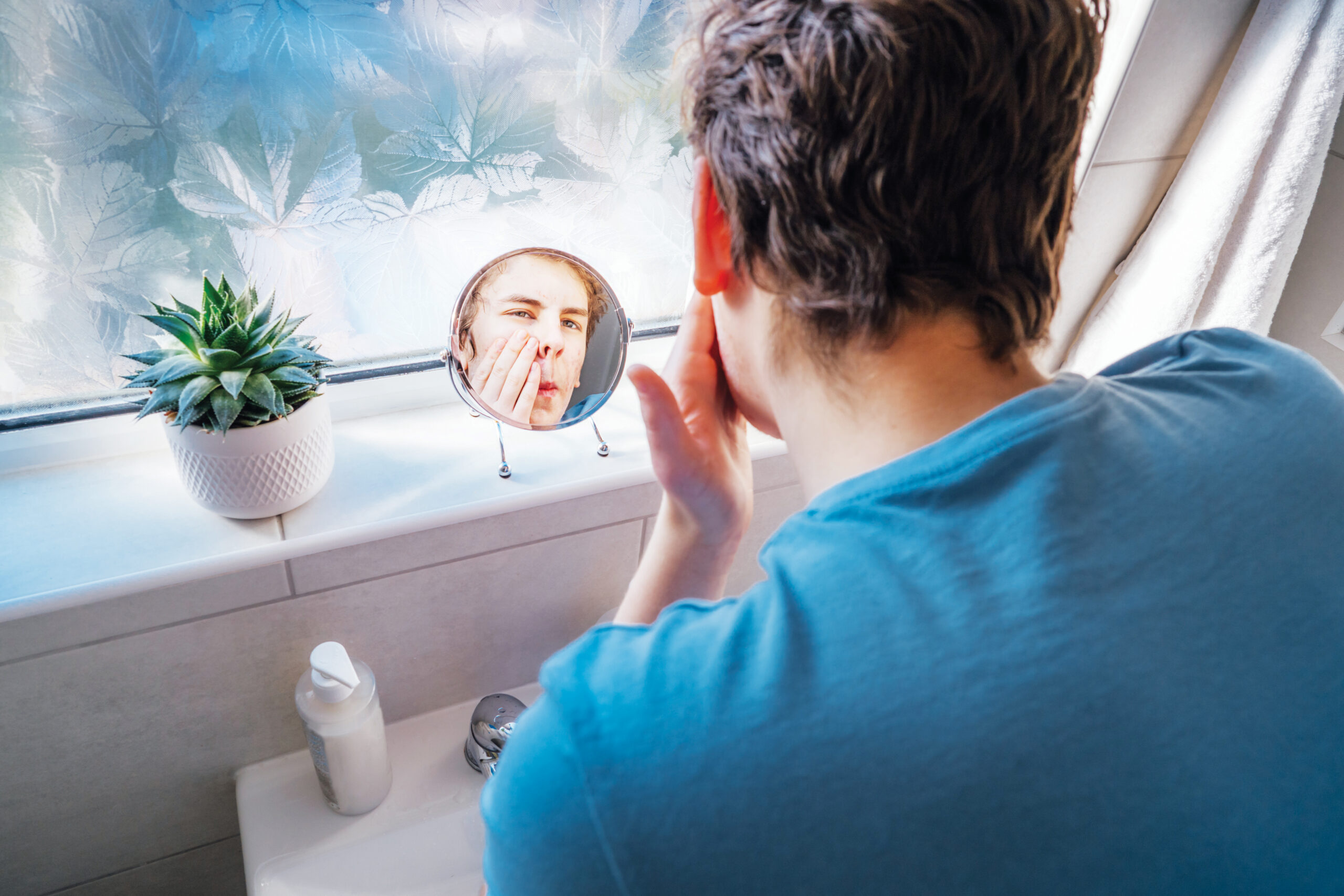
EFFECTS OF ACNE: MORE THAN SKIN DEEP
EFFECTS OF ACNE: MORE THAN SKIN DEEP
BY LIndsay McCarthy FNP-C, DCNP
Most of us have had some type of acne at some point in our lives. It typically shows up around middle school age when outward appearance becomes almost an obsession. Although acne is a common skin condition, it’s important for parents to be aware of how it may be affecting your tween or teen. Even just a few zits can have a significant impact on self-image, confidence, and happiness. These effects can linger into high school and adulthood and have a profound impact on mental health. How young adults navigate the hormonal changes of their skin can vary. You may notice grooming routines become increasingly time consuming, or your son or daughter no longer wants to participate in social activities they used to enjoy. Acne may not be avoidable, but understanding how it can impact the developmental process of adolescence is a first step in mitigating its potential negative effects on your teen.
Egocentrism refers to a stage of development typically between 11 and 16 years of age where kids are learning how to form their own thoughts and sense of identity. It is a normal and necessary process of growing up. Children in this stage tend to be very self-involved and extremely self-conscious. Physiological development also plays an important role at this age as well. Hormonal changes kick in. The skin starts to produce more oil and pores enlarge. Certain areas, like the face, become a prime site for black heads, pustules, and cysts to appear. Great timing, right? Imagine feeling like all eyes are on you and now your face has a scattering of bumps and red spots. Even though this is likely not the reality, young adults at this age struggle to separate their thoughts from the thoughts of others around them. Having acne during this time of development can have a significant impact on how a child navigates through this tumultuous time. Even mild acne has been shown to contribute to feelings of low self-esteem, poor self-image, and anxiety. Studies have shown that the longer acne lasts, the more likely it will have a negative impact on mental health. If left untreated, acne can get worse and, in some cases, lead to permanent scarring.
If acne seems to be taking its toll on your child’s well-being, getting started on treatment will not only improve their outward appearance, but can also help improve self-esteem and emotional well-being. There are numerous acne treatments available over the counter as well as by prescription. The available options and different approaches to treatment can be overwhelming. The journey can be frustrating for both parent and child. The following tips can assist you in helping your son or daughter feel better on outside as well as on the inside.
Get started on treatment early
Acne can get worse if left untreated. Clogged pores and pimples can progress into deeper cystic lesions. Studies have shown that early treatment helps prevent worsening acne and potential for scarring. Over-the-counter acne treatments are a great place to start and are easily accessible. Getting your child started on an acne treatment is also a great way to practice consistency. The success of managing acne depends on the regular and consistent use of whatever treatment modality is being used. Just the act of getting your tween in the habit of washing with a gentle cleanser will help prepare them for any future skin care regimens that may be needed.
Manage expectations
There are no acne treatments that work overnight. Acne treatments take time to kick in. Topical medications typically take at least six to eight weeks to start to improve acne. Stopping an acne wash or cream before that time frame may only postpone the desired result. Unless acne is worsening or the treatment is causing irritation, encourage your child to stick with it for at least four weeks before making a change in treatment.
It’s also important to recognize what you and your child’s goals are for treatment. Are you looking for absolutely clear skin? Are a few small zits tolerable? Identifying what the objective is in treatment will help clarify when you need to see a dermatology provider and how they can help you in your child’s treatment goals.
Take acne seriously
Most of us have or have had acne. Although acne is common, it is important not to normalize the negative impact it can have on emotional development and mental health. Numerous studies have demonstrated that people who suffer from acne are at risk for developing anxiety and depression. Adolescents are particularly vulnerable to the negative consequences that acne can have. The severity of acne does not correlate to the severity of impact it may be having on them emotionally. Take acne seriously. Acne may fade over time, but its impact on mental health can last a lifetime. ■
